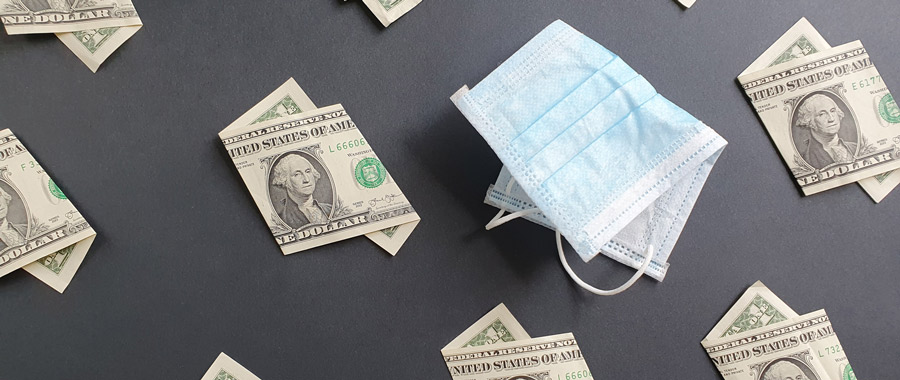The intersection of the pandemic and economic parameters has engendered profound inquiries regarding the intrinsic value of human life. This discourse, underpinned by Bahá’í teachings, invites a rigorous examination of how spiritual principles can navigate the complexities of life-death decisions in economic contexts, particularly amid crises such as global pandemics. As societies grapple with resource allocation and healthcare priorities, the Bahá’í faith underscores the need for a universal perspective that transcends mere monetary valuation.
Fundamentally, Bahá’í teachings advocate for the recognition of the sanctity and inviolability of human life. Every individual contains an inherent worth that cannot be quantified by wealth or physical assets. This philosophical bedrock reshapes discussions surrounding the pandemic economy by highlighting that human life extends beyond productivity metrics. It beckons a shift from conventional economic indicators, which often reduce people to mere statistics, to a more compassionate appraisal of each person’s dignity and potential.
In essence, this valuation calls upon society’s moral compass, urging a collective responsibility toward protecting and nurturing human life as a core tenet of economic policy. These alternatives pivot away from hegemonic capitalism that prioritizes profit over people. The Bahá’í writings articulate a vision where economic systems must be aligned with ethical imperatives, thus encouraging policies that foster equitable health care, education, and social welfare systems. This frameworks prevents the dehumanization that ensues during crises and ensures that vulnerable populations do not succumb to the relentless calculus of economic survival.
Furthermore, the teachings elucidate the necessity of empathy during economic decision-making. The pandemic has catapulted isolation and mental health crises into the limelight; thus, the Bahá’í approach, emphasizing community cohesion and collective upliftment, emerges as vital. Instead of framing discussions solely around fiscal recovery, it becomes essential to value interpersonal connections and social support structures that nurture mental well-being. These community-oriented initiatives are integral to achieving a resilient economy that values human life in its totality.
Moreover, a critical aspect worth delving into is the concept of sacrifice and service inherent in Bahá’í teachings. The pandemic has unveiled numerous acts of altruism, where individuals and organizations pivot to serve others. This aligns closely with the Bahá’í articulation of global citizenship, which implores individuals to transcend national boundaries and prioritize the common good. It highlights the interconnectedness of humanity, suggesting that the well-being of one is inherently tied to the well-being of all. This notion exemplifies how, even in the grip of a pandemic, the worth of human life is amplified in socially responsible economic frameworks. The response to crises must incorporate the virtues of compassion, solidarity, and selflessness.
Delving deeper, the Bahá’í perspective advocates for a reassessment of value narratives. Rather than reducing human worth to economic or utilitarian standards, it is essential to highlight contributions that might not translate into immediate financial benefit, such as caregiving, teaching, and other forms of social contribution. As we observe the upheaval caused by the pandemic, these roles have emerged as pivotal; thus, an economy that recognizes and compensates such invaluable contributions fosters a more just society.
It is equally imperative to examine the ethical implications of resource allocation during times of crisis. Bahá’í principles challenge systems that allow for inequitable treatment in healthcare access, emphasizing that inequities in treatment disseminate harm. This denotes an ethical obligation to structure systems in a way that prioritizes equitable opportunities for health and safety. Decisions around who receives medical attention, particularly in resource-limited settings, necessitate a profound consideration of human dignity—an exhortation rooted deeply in Bahá’í tenets.
Through this lens, the pandemic economy is not merely a tableau of statistics but a complex interplay of human narratives and experiences. Policymaking should reflect these intricacies by integrating comprehensive strategies that account for various socioeconomic dimensions. The urgency to cultivate a healthcare system attuned to the needs of all, particularly marginalized groups, is a testament to the Bahá’í insistence on the oneness of humanity. Thus, a pandemic economy must extend beyond conventional paradigms, adopting holistic approaches that reflect communal values and ethical stewardship.
Moreover, the pandemic has illuminated the need for adaptability and innovation in economic thought. Embracing change through a lens of cooperation, Bahá’í teachings advocate for systems that are flexible and responsive to evolving circumstances while staying committed to ethical principles. This resilience is fundamental in creating a sustainable societal framework. Furthermore, fostering a culture that values humanity over mere economic transactions encourages businesses to operate ethically, prioritizing employee well-being, community impact, and environmental sustainability.
In summation, the juxtaposition of Bahá’í teachings with contemporary economic discourse, especially in the context of a pandemic-driven economy, enriches our understanding of what it means to value human life. It transcends traditional economic paradigms, urging a reframing that prioritizes compassion, equity, and holistic approaches to human dignity. In navigating the challenges ahead, the integration of Bahá’í principles is indispensable in fostering economies that not only survive crisis but elevate the intrinsic worth of every human life as a foundational pillar.
